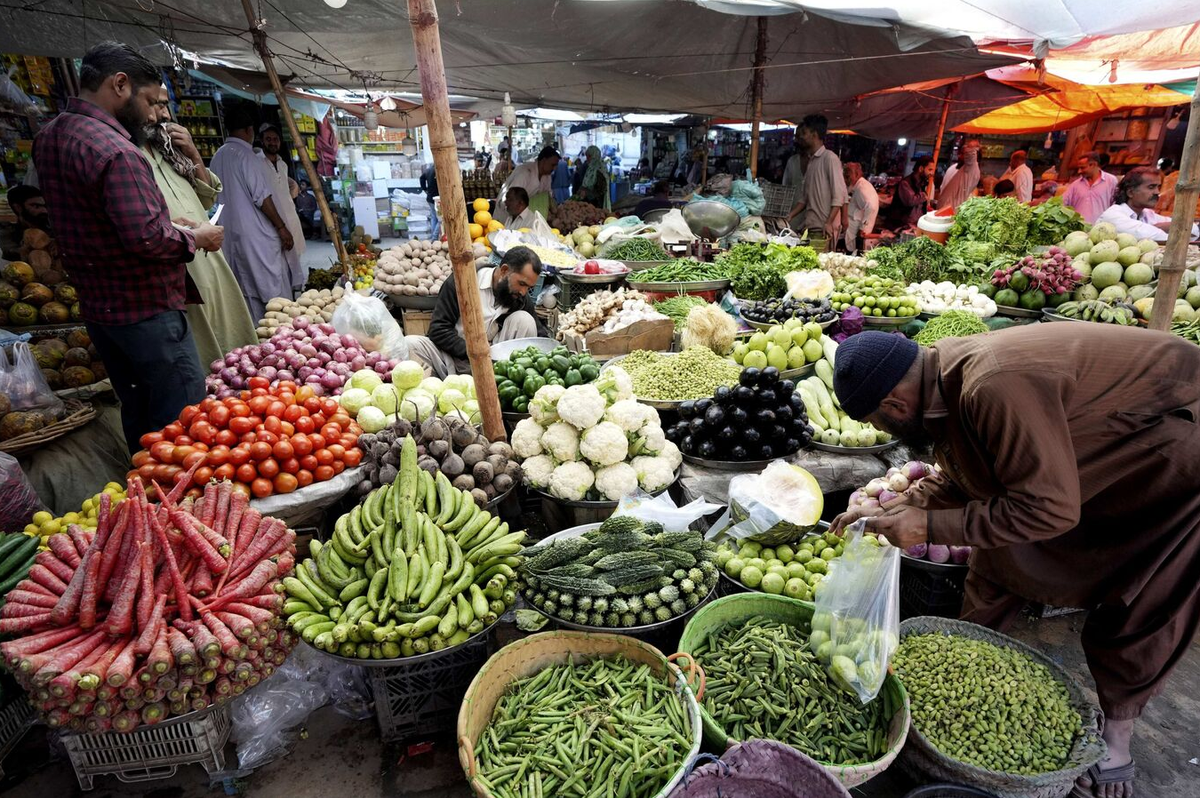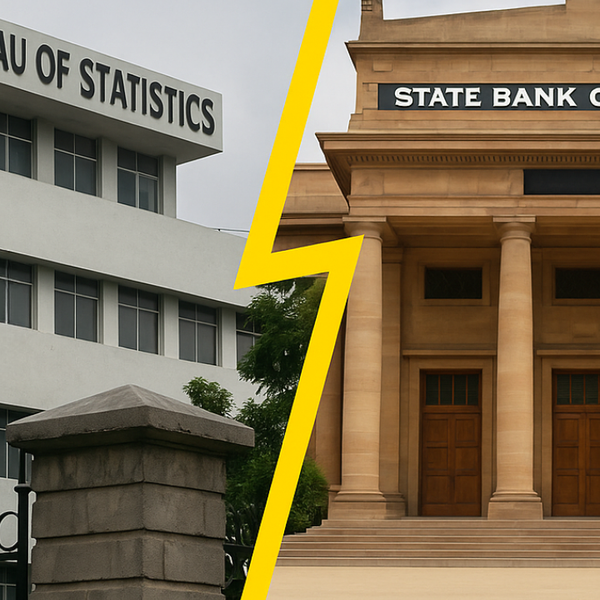Flood disruptions drive food prices higher in Pakistan
Economists warn that inflationary pressures may persist in the coming weeks if floods continue to disrupt transport routes and crop supplies
Business Desk
The Business Desk tracks economic trends, market movements, and business developments, offering analysis of both local and global financial news.

Most analysts expect the central bank to keep interest rates steady.
Nukta
Food prices in Pakistan surged over the past week amid continued disruptions caused by severe flooding, according to new data released Thursday by the Pakistan Bureau of Statistics (PBS).
The Sensitive Price Indicator (SPI), which tracks the prices of 51 essential items on a weekly basis, rose by 1.29% in the week ending Sept. 4. The spike was largely attributed to sharp increases in staple food costs, driven by supply chain breakdowns resulting from flood damage.
Tomato prices skyrocketed by 46.03%, while wheat flour rose by 25.41%, onions by 8.57%, basmati rice (broken) by 2.62%, and garlic by 2.04%. Prices of potatoes, pulses, and bread also registered moderate increases.
Of the 51 items tracked, 23 (45.1%) became more expensive, while prices fell for only four items (7.8%) — bananas (down 3.86%), diesel (0.91%), sugar (0.13%), and mustard oil (0.10%). Prices for the remaining 24 goods (47.1%) remained unchanged.
Year-on-year, the SPI reflected a 5.07% increase in inflation. Tomatoes led the annual surge with a staggering rise of 83.45%, followed by ladies’ sandals (55.62%), wheat flour (30.27%), and gas charges (29.85%). In contrast, onions, garlic, and pulses saw notable declines compared to the previous year.
Economists warn that inflationary pressures may persist in the coming weeks if floods continue to disrupt transport routes and crop supplies. “The ongoing weather crisis is placing additional strain on food availability, pushing prices higher and exacerbating the cost-of-living crisis for households,” one analyst said.
Despite the rising trend, most analysts believe the central bank is likely to keep interest rates steady in the upcoming monetary policy meeting. With headline inflation expected to climb further due to flood-related shocks, the State Bank of Pakistan is expected to maintain its current policy stance to avoid destabilizing the economy.










Comments
See what people are discussing